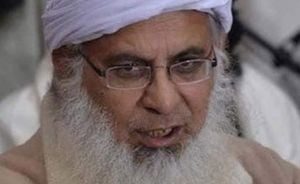The ongoing appeal of former Austrian Finance Minister Karl-Heinz Grasser regarding the infamous Buwog case continues to draw significant media attention. The second day of the appeal proceedings started at the Supreme Court (OGH) on March 21, 2025, as the court delves into a long-standing real estate scandal that has implications for government accountability in privatization.
In a scene reflecting the heightened interest in the case, Grasser, who was sentenced to eight years in prison for his role in the scandal, chose not to address journalists prior to the start of the hearings. His lawyer, Manfred Ainedter, anticipates an OGH decision on Monday, March 24, 2025, emphasizing that the proceedings are critical for all those involved.
The Supreme Court session is scheduled to last four days, during which the five-member judicial panel, led by Judge Christa Hetlinger, is assessing the nullity complaints and criminal appeals from Grasser and other defendants who have not been legally convicted. Not only Grasser faces scrutiny, as former FPÖ General Secretary Walter Meischberger and lobbyist Peter Hochegger are also appealing their respective non-binding convictions in connection with the case.
This case traces its roots back to a controversial real estate deal that has occupied the public spotlight for over 21 years. The deal involved the sale of approximately 60,000 federal apartments to a consortium associated with the real estate firm Immofinanz for the amount of 961 million euros. Competing bidder CA Immo had placed a bid just one million euros lower, raising questions about the legitimacy of the sale and whether insider information had swayed the outcome.
The allegations suggest that Grasser may have provided unfair advantages to his friends, Meischberger and Hochegger, who are accused of pocketing 9.6 million euros in commissions from the Immofinanz deal. The gravity of these charges has sparked intense public and media interest, particularly as the Supreme Court now reviews what some describe as a long-awaited reckoning in the matter.
The hearing at the OGH represents a potential concluding chapter to a saga that began in the early 2000s when the deal was initially orchestrated. As the court's deliberations unfold, the judicial body holds the power to either uphold the convictions from previous rulings or overturn them entirely, presenting various possible outcomes for those involved. This includes a full court confirmation of the prior ruling or complete annulment of the earlier decisions.
Given the public's longstanding intrigue with the case, the anticipated outcomes hold broader implications not only for Grasser’s future but also for how future privatizations and governmental decisions will be undertaken in Austria.
As the proceedings continue, observers reflect on what this case signifies for accountability in government, questioning how public trust can be restored in light of such scandals. The trial serves as a litmus test for judicial integrity and political transparency, echoing sentiments from various factions within Austrian society.
In a judicial landscape undergoing scrutiny, the decisions made by the OGH may influence public policy significantly moving forward, especially regarding regulations surrounding government contracts and real estate transactions. The ongoing media coverage suggests that the public remains acutely aware of the legal battles faced by high-profile officials.
Throughout the proceedings, citizens have voiced their opinions, highlighting the need for more stringent regulations to ensure such lapses in governance are prevented in the future. Will this case mark a turning point for Austrian politics? Only time will reveal the legacy of this high-stakes trial. As March 24 approaches, all eyes will be on the Supreme Court for its final verdict that could shape the future of political accountability in Austria.




